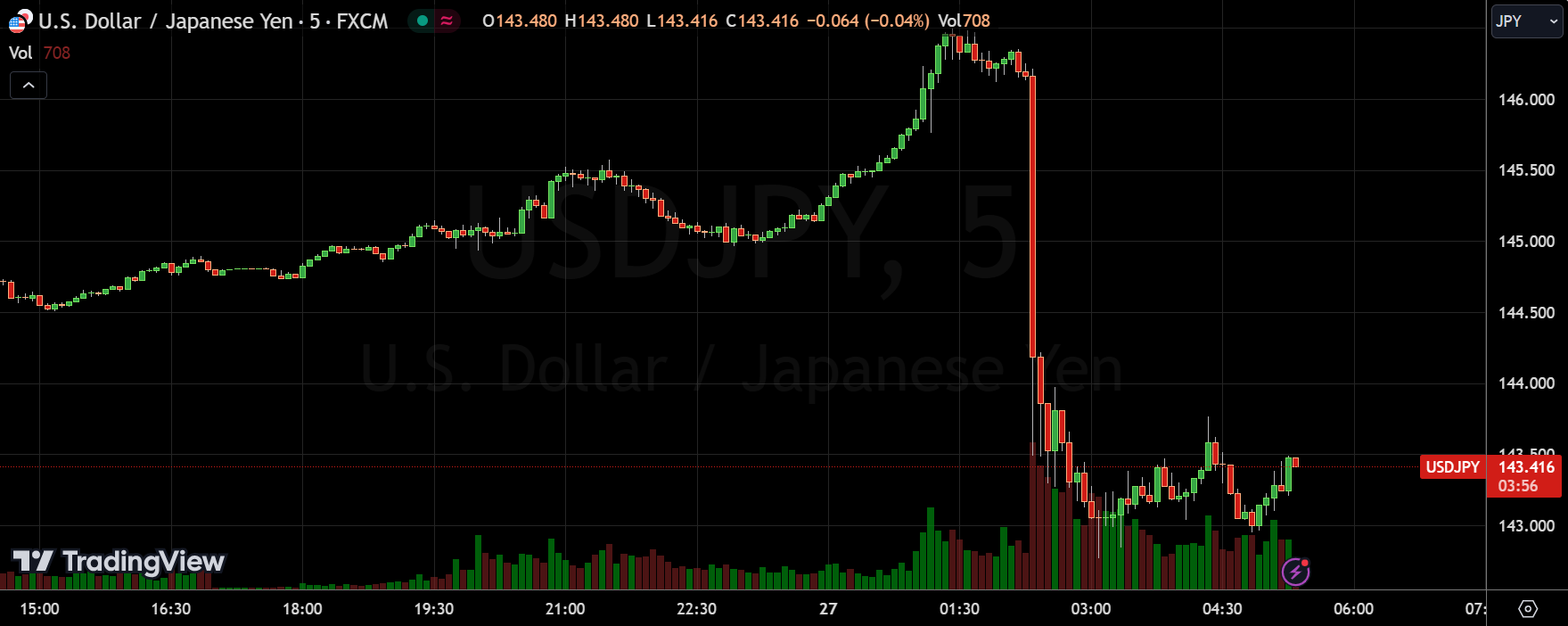How Japan's election change the market?
Japan's ruling Liberal Democratic Party (LDP) presidential election opened, the second round of voting, the LDP's former chief executive Shigeru Ishiba cold majority of votes, elected the new president of the LDP.
The yen soared against the dollar, the Nikkei retreated and led global stock indexes to pull back. $S&P 500(.SPX)$ $Invesco QQQ(QQQ)$ $NASDAQ(.IXIC)$ $Nikkei 225 Exchange Traded Fund(NTETF)$ $SGX Nikkei 225 - main 2412(NKmain)$
Shigeru Ishiba's policy stance
Shigeru Ishiba, in contrast to Japan's previous policies under the "Abe Economics", has put forward a series of ideas that are very different from the current policies, especially in the economic and financial fields.His policy ideas are mainly reflected in the following areas:
Monetary Policy
Shigeru Ishiba favors a relatively tight monetary policy.He believes that
With the prolongation of monetary easing, Japan's fiscal and central bank finances had deteriorated, thus necessitating the gradual realization of an interest rate environment.
The establishment of a new organization to deal with the macroeconomic crisis is necessary.This suggests that he is supportive of the hawkish stance that the BOJ may take in the future.
Exchange rate policy
On the exchange rate front, Shigeru Ishiba prefers a strong yen.He believes that the appropriate U.S.-Japanese exchange rate should be between 110-140, and pointed out that the appreciation of the yen will reduce the price of imports, thus bringing a positive impact.This contrasts with the "weak yen for exports" strategy emphasized under Shinzo Abe.
Fiscal Policy
Shigeru Ishiba advocates fiscal tightening and supports tax increases.
He mentioned consumption tax, income tax and corporate tax as important sources of Japan's fiscal revenue
and said that an upward revision of financial income tax and corporate tax would be considered.
Corporations that can afford to do so should pay a higher corporate tax, but this approach could lead to the relocation of highly profitable corporations out of Japan.
Historically, Japan has experienced economic slowdowns following consumption tax hikes, so the potential impact of such a policy on economic growth needs to be carefully assessed.
In general, Shigeru Ishiba's policy stance is in contrast to Abe's economics, which favors conservative and tightening economic policies.
Impact on Financial Markets
If Shigeru Ishiba is elected as the Prime Minister of Japan, his policies will likely have a significant impact on the financial markets.The following is an analysis of the main impacts:
Change in yen exchange rate
The yen is expected to appreciate after Shigeru Ishiba's election.This is due to his preferred strong yen policy and possible tightening of monetary policy.The market may reassess the yen's status as a safe-haven currency and reduce hedging trades compared to the Shinzo Abe years.
Stock market reaction
Market confidence in the Japanese stock market may weaken due to Shigeru Ishiba's preference for tax increases and tighter fiscal policy.Investors may be concerned about suppressed corporate profitability, which could lead to a decline in the stock market.According to the survey, the market has low expectations for Shigeru Ishiba when he is elected, with only 10% of stock market stakeholders wanting him to become the new president, which shows a lack of confidence in the market.
Bond Market Dynamics
In the bond market, Japanese bond rates are likely to rise in anticipation of a stronger yen and tighter monetary policy.This is in contrast to the downward trend in Japanese bond rates during the past Shinzo Abe administration.Investors may reconsider their bond investment strategies to address the risks associated with a potential rise in interest rates.
In summary
After Shigeru Ishiba's election, Japan's financial markets may face a reversal of the "Abe deal" in the form of a stronger yen, lower stock market and higher bond rates.However, the magnitude of these changes is likely to diminish as the Japanese economic environment in 2024 is significantly different from that of 2012.Against this backdrop, investors should pay close attention to policy changes and their impact on market dynamics in order to formulate investment strategies accordingly.
Disclaimer: Investing carries risk. This is not financial advice. The above content should not be regarded as an offer, recommendation, or solicitation on acquiring or disposing of any financial products, any associated discussions, comments, or posts by author or other users should not be considered as such either. It is solely for general information purpose only, which does not consider your own investment objectives, financial situations or needs. TTM assumes no responsibility or warranty for the accuracy and completeness of the information, investors should do their own research and may seek professional advice before investing.
- jislandfund·2024-09-28thanks maverickLikeReport

